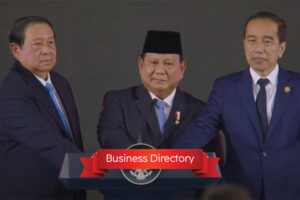In recent times, the property business has gained tremendous popularity, and investing in this sector has become a prevailing trend, not only globally but also in Indonesia. With the introduction of the groundbreaking Job Creation Law (UUCK), which aims to streamline and eliminate outdated regulations that hinder business activities, the prospects for property investment, particularly in relation to foreign ownership, are expected to become increasingly favorable.
Marine Novita, the Country Manager of Rumah.com, emphasized the significance of encouraging opportunities from the foreign market for business players. One such opportunity arises from Singapore, where the additional buyer’s stamp duty (ABSD) for foreign property buyers has been raised from 30% to 60%.
“The increase in ABSD in Singapore represents a promising avenue for the Indonesian property market as it can serve as an alternative investment destination for foreign investors. The government should proactively promote the ease of doing business and legal certainty for foreign property investors,” she stated.
This situation aligns with the continuous influx of foreign investment into Indonesia, particularly in the establishment of manufacturing plants. The extensive infrastructure development projects also present additional opportunities that enhance Indonesia’s attractiveness for international investments on the global stage.
President Jokowi’s Special Regulation for Foreign Ownership of Apartments
President Joko Widodo (Jokowi) has introduced specific regulations regarding the ownership of apartment units, also known as flats, for foreigners. These special regulations are stated in the Government Regulation in Lieu of Law on Job Creation.
According to the regulation, foreign citizens can obtain ownership rights over apartment units (flats) as stipulated in Article 144, paragraph 2. The same applies to foreign legal entities, foreign state representatives, and international organizations with representatives in Indonesia.
“The ownership rights of apartment units can be granted to: a. Indonesian citizens; b. Indonesian legal entities; c. foreign citizens with permits in accordance with the provisions of the laws and regulations; d. foreign legal entities with representatives in Indonesia; or e. foreign state representatives and international organizations located or having representatives in Indonesia,” the regulation states.
The provisions regarding the ownership of apartment units (flats) for foreign citizens were previously regulated in Government Regulation (PP) No. 103 of 2015 concerning the Ownership of Residential Houses or Dwellings by Foreigners Residing in Indonesia.
Article 5 of the PP states that Foreigners are granted the Right to Use for newly purchased single houses and Ownership Rights over apartment units (flats) above the Right to Use for newly purchased units. Thus, foreigners can indeed own apartments, but subject to the condition that they are built on land with Right to Use status.
Ease of Property Ownership for Foreigners in Indonesia
The Director General of Land Rights and Registration Determination (PHPT) at the Ministry of Agrarian and Spatial Planning/National Land Agency (ATR/BPN), Suyus Windayana, highlighted the remarkable ease with which foreign individuals can now purchase properties in Indonesia. This shift is due to the amended regulations under the UUCK, which have been enacted as Law No. 6 of 2023.
However, it is crucial to note that certain limitations and conditions must be met regarding foreign ownership of assets in the country. These restrictions include the maximum number of units and the percentage of foreign ownership within a single apartment tower, as well as the pricing range. These measures are in place to ensure the continued healthy growth of the domestic property market.
Low Interest from Foreigners in Owning Homes in Indonesia
Despite the government’s efforts to facilitate property ownership for foreign nationals in Indonesia through the Omnibus Law on Job Creation, the actual level of foreign interest and purchasing activity has not exhibited significant growth. The Director General of PHPT, Suyus Windayana, expressed that although the regulatory updates have been implemented, further investigations are underway to understand the reasons behind the relatively low enthusiasm among foreign nationals.
The government has already issued various policy updates, such as Ministerial Decree No. 1241/SK-HK.02/IX/2022, which specifically addresses the acquisition and pricing of residential properties for foreign individuals. These regulatory revisions aim to provide greater ease and accessibility for foreign nationals interested in purchasing properties in Indonesia.
Therefore, it remains imperative for relevant authorities to continue their exploration of the underlying factors that contribute to the subdued response and public sentiment regarding these regulatory changes. If bureaucratic hurdles within government land agencies are identified as significant obstacles, appropriate interventions will be implemented to ensure a more conducive environment for property investment in the country.





 20% off today. Whatsapp us!
20% off today. Whatsapp us!